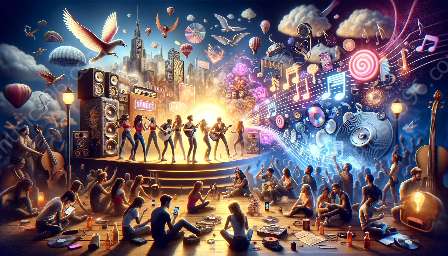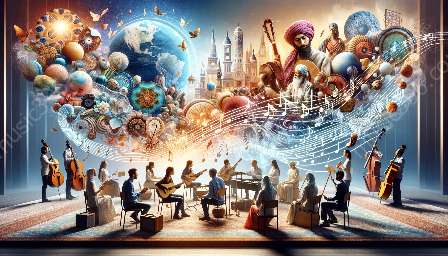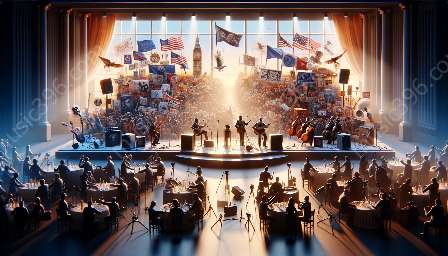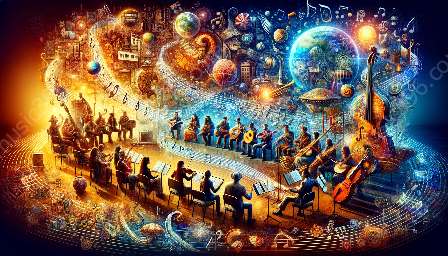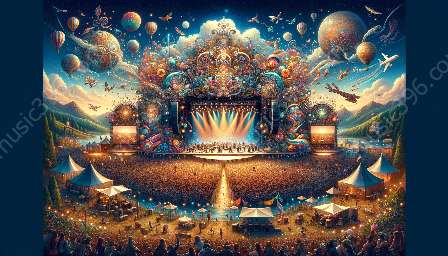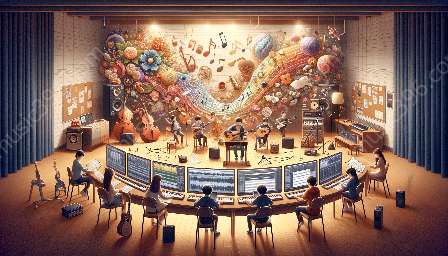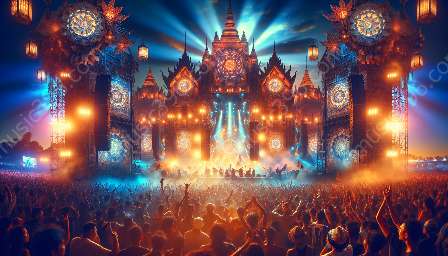Music festivals are more than just gatherings of music enthusiasts; they are cultural experiences that have the power to influence social change. In recent years, the conversation about social justice at music festivals has been growing, shining a light on the need for inclusivity, diversity, and equity within these spaces. This topic cluster seeks to explore the significance of social justice within the context of music festivals, delving into the ways in which music, culture, and social equality intersect.
Understanding Social Justice at Music Festivals
Social justice at music festivals encompasses various elements, including accessibility, representation, and community engagement. By examining these aspects, we can gain a better understanding of the challenges and opportunities for creating a more inclusive environment within the festival scene. Moreover, it is vital to recognize the potential of music festivals as platforms for promoting social justice and bring about positive change.
The Intersection of Music, Culture, and Social Justice
Music has long been a catalyst for social movements and change, serving as a powerful medium for expressing solidarity and addressing societal issues. When music festivals embrace diverse genres and artists, they not only celebrate cultural richness but also contribute to breaking down barriers and stereotypes. Understanding the cultural significance of music and its impact on societal norms can illuminate the role of music festivals in promoting social justice.
Fostering Inclusivity and Diversity
One of the fundamental aspects of social justice at music festivals is the promotion of inclusivity and diversity. This involves creating spaces where people from all walks of life feel welcome and represented. By prioritizing diverse lineups, amplifying marginalized voices, and providing a safe and accessible environment, music festivals can foster a sense of belonging and empowerment among attendees.
Addressing Social Inequities
Music festivals provide an opportunity to address social inequities, including economic disparities, discrimination, and underrepresentation. Through initiatives such as scholarship programs, community outreach, and partnerships with social justice organizations, festivals can actively work towards reducing barriers to access and participation. By acknowledging and confronting systemic injustices, music festivals can become agents of positive social change.
Empowering Through Education and Advocacy
Empowering festival-goers with knowledge and resources is integral to promoting social justice at music festivals. Workshops, panel discussions, and educational sessions can raise awareness about social issues and encourage active participation in advocacy efforts. By engaging attendees in meaningful dialogue and connecting them with relevant social justice causes, festivals can inspire individuals to become agents of change within their communities.
Celebrating Cultural Heritage and Identity
Music festivals play a crucial role in celebrating cultural heritage and identity, offering a platform for artists to share their stories and traditions. By incorporating diverse cultural elements into festival programming, such as traditional music, dance, and visual arts, festivals can enrich the overall experience for attendees while promoting cultural understanding and appreciation.
Creating Safe and Inclusive Spaces
Ensuring the safety and well-being of all attendees is paramount for promoting social justice at music festivals. This involves implementing robust security measures, providing resources for mental and physical health support, and actively addressing issues of harassment and discrimination. By prioritizing the creation of safe and inclusive spaces, festivals can set a positive example for the wider music community.
Championing Social Justice Initiatives
Music festivals have the potential to champion social justice initiatives by using their platform to raise awareness and support meaningful causes. This can involve partnering with social justice organizations, implementing sustainable and ethical practices, and leveraging the festival's influence to advocate for positive societal change. By aligning with values of fairness, equality, and justice, festivals can make a meaningful impact beyond the realm of music.
Conclusion
As music festivals continue to evolve as dynamic cultural spaces, the conversation around social justice becomes increasingly relevant. By recognizing the intersection of music, culture, and social equality, festivals can actively contribute to a more inclusive and equitable society. Through deliberate efforts to foster inclusivity, address social inequities, and empower attendees, music festivals have the potential to serve as beacons of positive change. By embracing the values of social justice, festivals can inspire a more vibrant and harmonious cultural landscape.




